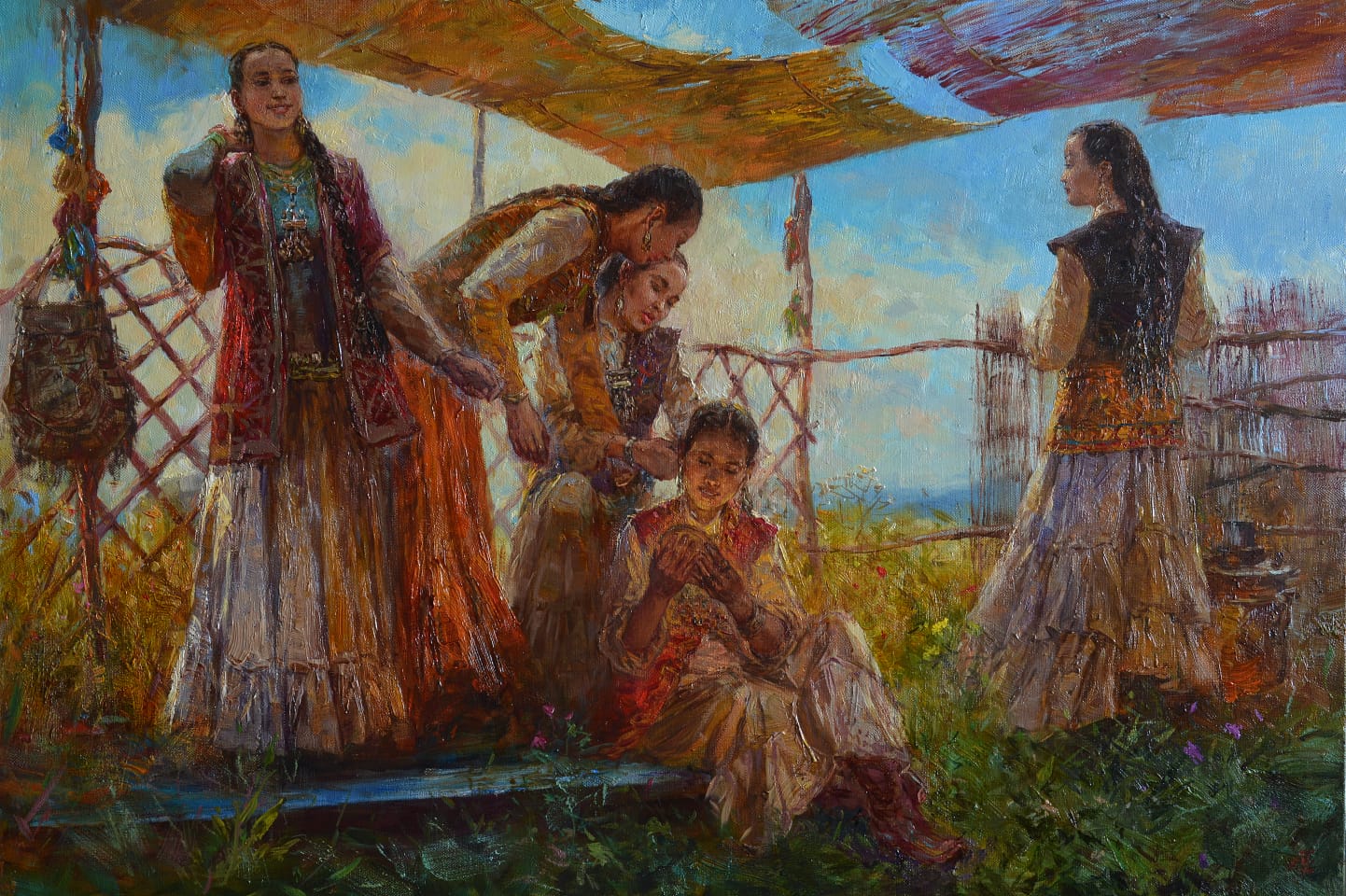
The novel life of traditions

Kazakh people possess plenty of traditions and customs. However, today some of them have been forgotten, many have been changed and replaced by modern ones. For example, nowadays people who have settled in a new house set the table and invite guests to their table. This ancient tradition has changed according to the new time. Because before, the neighbors invited the newly settled family to visit. This tradition is called "erulik beru" - and this was performed by the villagers so that the new neighbors would not feel alienated and to establish close communication with them. Erulik was prepared from selected parts of the winter slaughter, or a ram was slaughtered separately for inviting guests.
The next tradition, which shows the kindness of our people, is called "zhylu zhinau". If any family found itself in a difficult situation, left without shelter, livestock, and property, the villagers, neighbors, and relatives collected financial assistance for them. Usually, it was organized by one person, then the others picked it up. However, for those who lost their property in a forbidden way, no assistance was provided. This applies to gamblers who let their property in fornication, abused alcohol, and corrupted officials. It can be stated that charity, which is performed today by people who show concern for their people, is a tradition that came from ancestors which changed and received a new name.
Coming home to a young family and giving gifts is also an old custom called "Onir salu". In some places, it is also called "esik korsetu" or "esik ashar". Only honorable women participated in it, to congratulate and scatter “shashu” (sweets, baursaks, etc.). Additionally, they brought "Onir", these are necessary things for the home of the young, which will transform and enliven it.
At present, this tradition has changed. On the contrary, relatives invite the newlyweds to visit them and call it "esik korsetu". However, this cannot be called an updated tradition, because before it was a separate custom, which was called differently. After the marriage, relatives went to the house of the newly-made family and gave a special gift. The closest relative tied the horse to the doorframe. It was called "atbaylar". According to some reports, this custom is described differently. When a young man came for a bride, the daughter-in-law of the girl helped him get off the horse, tied her up, and asked for it kade (the custom of treats). Today daughters-in-law instead of "atbaylar" make the groom turn out his pockets. The main task is to get a treat. There are even those who drag the way of the arrived matchmakers with a rope. This is all related to the expression "he who betrays his daughter can be capricious."
For instance, in different regions of the country, traditions and customs have various meanings. What is normal for some is rude for others. One of these is sut akysy (payment for mother's milk). In addition to the kalym of the girl, it is specially given as a mother. Although many people consider this an excess, the tradition has mainly been preserved in the southern regions. However, this is one of the ancient customs of our people.
The date of that, in coordination with the matchmakers, is appointed by the parents of the bride. Matchmakers come to this celebration, headed by a senior matchmaker, and the groom brings his skillful friends. Special gifts and treats for matchmakers are given out, among them, there is a special and the biggest treat - "sut aky". Nowadays, this meeting has been replaced by the custom "tatti shay", and “kade” is given on a special "kudalik toi".
Author: Moldir Adamzhan
Translator-editor: Chingiz Smakov
Photo: ANTIKA gallery archives
